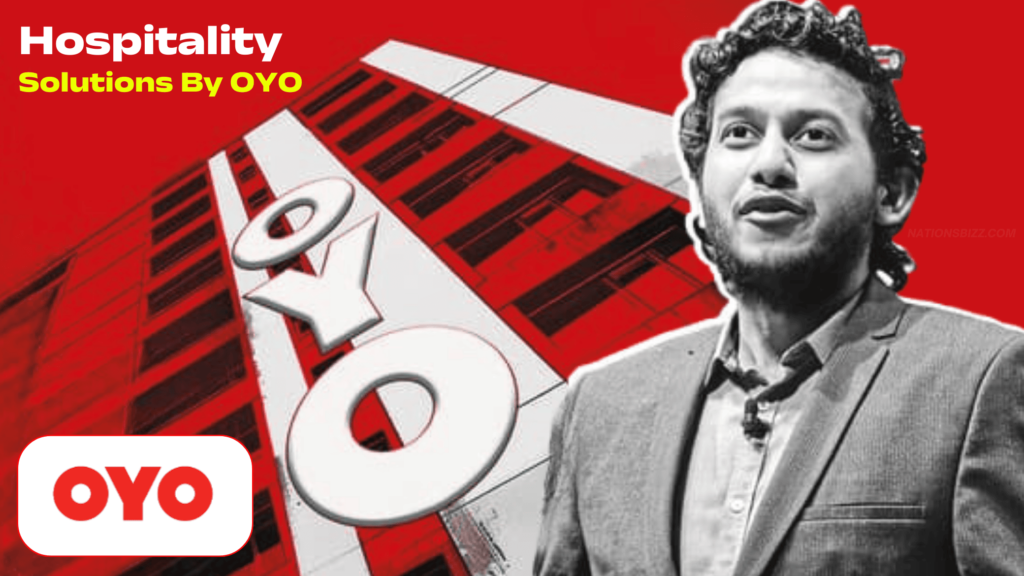OYO, short for “On Your Own,” is one of the most recognized hospitality chains in the world. Founded in 2013 by Ritesh Agarwal in India. It has grown from a small startup into a global company. OYO model is based on standardizing budget hotels, ensuring customers receive consistent experiences. In this article, we will explore OYO’s journey, business model, successes, challenges, and prospects.
The Origin of OYO
OYO began its operations in 2013 when Ritesh Agarwal, a young entrepreneur, noticed the lack of standardization in India’s budget hotel industry. His passion for providing quality, affordable accommodations was the driving force behind the company’s creation. At the time, India had a fragmented hotel market where travelers often faced poor service, inconsistent room quality, and varying price points. Agarwal recognized an opportunity to address these challenges by making technology and creating a platform that would offer affordable, well-maintained rooms with guaranteed quality.
Agarwal focus on affordable, quality stays was a breakthrough in a fragmented market. His efforts earned him several accolades, including the prestigious Thiel Fellowship, which provided seed funding to help him scale the business. This backing was instrumental in enabling OYO to expand rapidly in the early years, laying the groundwork for its future success. In a short period, OYO transformed the way budget hotels operated, with a clear focus on standardization and customer satisfaction.
Business Model Of OYO Hospitality Solutions
OYO business model revolves around aggregating budget hotels and offering a standardized experience to customers. The company follows an asset-light strategy by partnering with existing hotel owners rather than owning properties. This allows OYO to scale rapidly without significant capital investment in real estate. Let’s break down OYO’s business model in more detail:
- Partnerships with Hotels: OYO collaborates with hotel owners across various regions, upgrading their properties to meet OYO stringent standards. These standards include well-maintained rooms, consistent quality of service, and a clean environment.
- Revenue Sharing: Instead of owning properties, OYO enters into revenue-sharing agreements with the hotel owners. Hotels pay a fee or share a portion of their revenue with OYO in exchange for branding, marketing, and access to a large customer base.
- Technology Integration: One of OYO key strengths is its proprietary technology, which includes booking management, dynamic pricing, and customer service tools. The company uses data to optimize room pricing in time and ensure better occupancy rates.
- Branding and Marketing: Partner hotels benefit from OYO established company presence, helping them attract a steady stream of customers. OYO invests heavily in marketing campaigns, both online and offline, ensuring that its company is visible across multiple platforms, including social media, online travel agencies, and traditional advertising.
This approach has allowed OYO to scale rapidly without the financial burden of owning properties. By making technology, the company offers a unique experience to customers while ensuring that hotel owners benefit from increased and higher occupancy rates.
Challenges and Criticism
OYO rise has not been without its fair share of challenges. Some of the most significant hurdles faced by the company include:
- Quality Control Issues: As OYO expanded rapidly, ensuring consistent quality across thousands of properties became increasingly difficult. Some customers complained about discrepancies between the advertised photos and the actual condition of rooms, while others experienced subpar service at OYO hotels.
- Regulatory Compliance: Operating in multiple countries brought its own set of regulatory challenges. From local tax laws to zoning regulations, OYO had to work closely with authorities in each market to ensure compliance. In some regions, the company faced legal battles related to its business practices.
- Disputes with Partners: Some hotel owners accused OYO of unfair practices, including hidden fees and a lack of transparency in their agreements. These disputes strained relationships with key partners and led to some hotels opting out of the OYO network.
- Financial Losses: Despite rapid expansion, OYO struggled to turn a profit. Aggressive spending on marketing, technology, and global expansion led to significant financial losses. The company was forced to scale back its operations in certain regions to focus on profitability.
The COVID-19 pandemic further exacerbated OYO financial woes. With travel restrictions in place and bookings plummeting, the company faced a sharp decline in revenue. In response, OYO was forced to restructure its operations, lay off a significant portion of its workforce, and pivot its business model to focus on long-term sustainability.
Innovations and Adaptations in OYO Hospitality Solutions
To overcome its challenges, OYO has adopted several strategies:
- Enhanced Quality Checks: OYO has implemented stricter quality control measures to ensure that the properties in its network adhere to high standards. Regular inspections and customer feedback are now used to maintain the quality of service across hotels.
- Technology Upgrades: OYO continues to innovate with AI-driven tools for dynamic pricing and customer experience. The company uses data analytics to offer personalized recommendations to travelers and optimize room rates based on demand and market conditions.
- Flexible Business Models: OYO has diversified its business model by offering franchise options alongside managed properties. This flexibility allows hotel owners to choose the model that best suits their needs while still benefiting from OYO’s branding and operational support.
These innovations are part of OYO broader strategy to regain trust among its partners and customers. By focusing on operational efficiencies and enhancing the quality of service, the company aims to rebuild its reputation and improve its profitability.
The Future of OYO
Looking ahead, OYO future depends on its ability to balance growth with profitability. The company is likely to focus on several key areas:
- Sustainable Growth: After years of aggressive expansion, OYO is now prioritizing profitability over rapid growth. This shift in focus will help the company stabilize its operations and achieve long-term sustainability.
- Strengthening Partnerships: OYO plans to work more closely with hotel owners to build stronger, mutually beneficial relationships. By offering more transparency and better support, OYO hopes to regain the trust of its partners.
- Technological Advancements: As the travel industry becomes more tech-driven, OYO is committed to continuing its technological innovations. From AI-powered pricing systems to personalized customer experiences, the company will keep investing in cutting-edge technology.
- New Market Opportunities: OYO will continue to explore untapped markets and emerging travel trends, such as accommodations for remote workers and the rise of sustainable tourism. By capitalizing on these trends, OYO can stay ahead of the curve in a highly competitive industry.
Balancing Challenges with Future Potential
OYO’s journey from a small Indian startup to a global hospitality leader is a remarkable story of creation and ambition. While it faces significant challenges, its commitment to technology, partnerships, and customer satisfaction positions it well for future success. By balancing growth with profitability, and focusing on sustainable practices, OYO can continue to transform the hospitality industry.

















